TEL AVIV, Israel—Marking the 11-month anniversary of October 7, citizens took to the streets of Israeli cities Saturday in what organizers described as the war’s largest demonstrations in support of hostage families to date. Hundreds of thousands of people gathered here on Begin Street to send what they hoped would be a clear message to Israeli Prime Minister Benjamin Netanyahu: Reach a deal to bring the abductees home, even if it means making military sacrifices in Gaza.
Yet the decision isn’t Netanyahu’s alone and few Israelis, even among the protesters, think the government should agree to a deal at any cost. Amid disagreements over where to draw the line, many fear the war has reached an inflection point at which a choice must be made: Save the kidnapped Israelis or continue the war against Hamas. Meanwhile, distrust of Netanyahu’s motives abounds, with critics accusing him of making eleventh-hour demands to sabotage the ceasefire-for-hostage-release talks.
“We expect the government to do everything it can. Putting up more obstacles to a deal is not doing everything you can. It looks like the government has already given up on the hostages,” said Molly Dori, a resident of the nearby city of Herzliya who attended the Tel Aviv demonstrations. “It’s horrible. We cannot stand it. That’s why we are protesting. We come here every week.”
And many of the demonstrators have been personally touched by the ongoing hostage crisis. Such is the case for Orly Chen, whose nephew, Israeli American Itay Chen, was killed and taken into Gaza by Hamas terrorists on October 7. “We’re still fighting to bring him back home for the proper burial that he deserves. He can’t be left there,” Chen told The Dispatch on Saturday night. “We’re a united country, and the hostages have to come back home—those who are alive and those who are unfortunately not.”
The belief that Netanyahu is undermining negotiations can be attributed at least in part to vows by his coalition partners to topple the government if a previously floated hostage deal is struck. Whether the ultranationalist party leaders would follow through on the threats remains uncertain, but many Israelis now believe the prime minister is prioritizing his political fate over that of the some 100 abductees, living and deceased, who remain in Gaza.
For many, Hamas’ execution of six hostages late last month brought new urgency to the cause they have advocated for since the beginning of the war. The group of murdered Israelis included Carmel Gat, whose cousin Shay Dickmann blamed the prime minister for thwarting a July deal from coming to fruition in a tearful speech Saturday night. “Netanyahu said no,” she claimed of the agreement that almost came to pass.
“Seeing how he’s managed the process in recent weeks, combined with the fresh trauma, is what galvanized people to the streets,” Tel Aviv-based political analyst Dahlia Scheindlin told The Dispatch. “All surveys show that a clear majority—even more than those who are critical of the government, even more than those who support a hostage deal—believe that Netanyahu was taking his own political future into account in his decision-making.”
“If elections were held today, Netanyahu would not be able to form a government,” Scheindlin added. In a recent poll by Israel’s Channel 12, 69 percent of respondents said Netanyahu shouldn’t run in the next election, compared to just 22 percent who said he should. Even among coalition voters, more respondents—46 percent—said Netanyahu should resign than said he should run again.
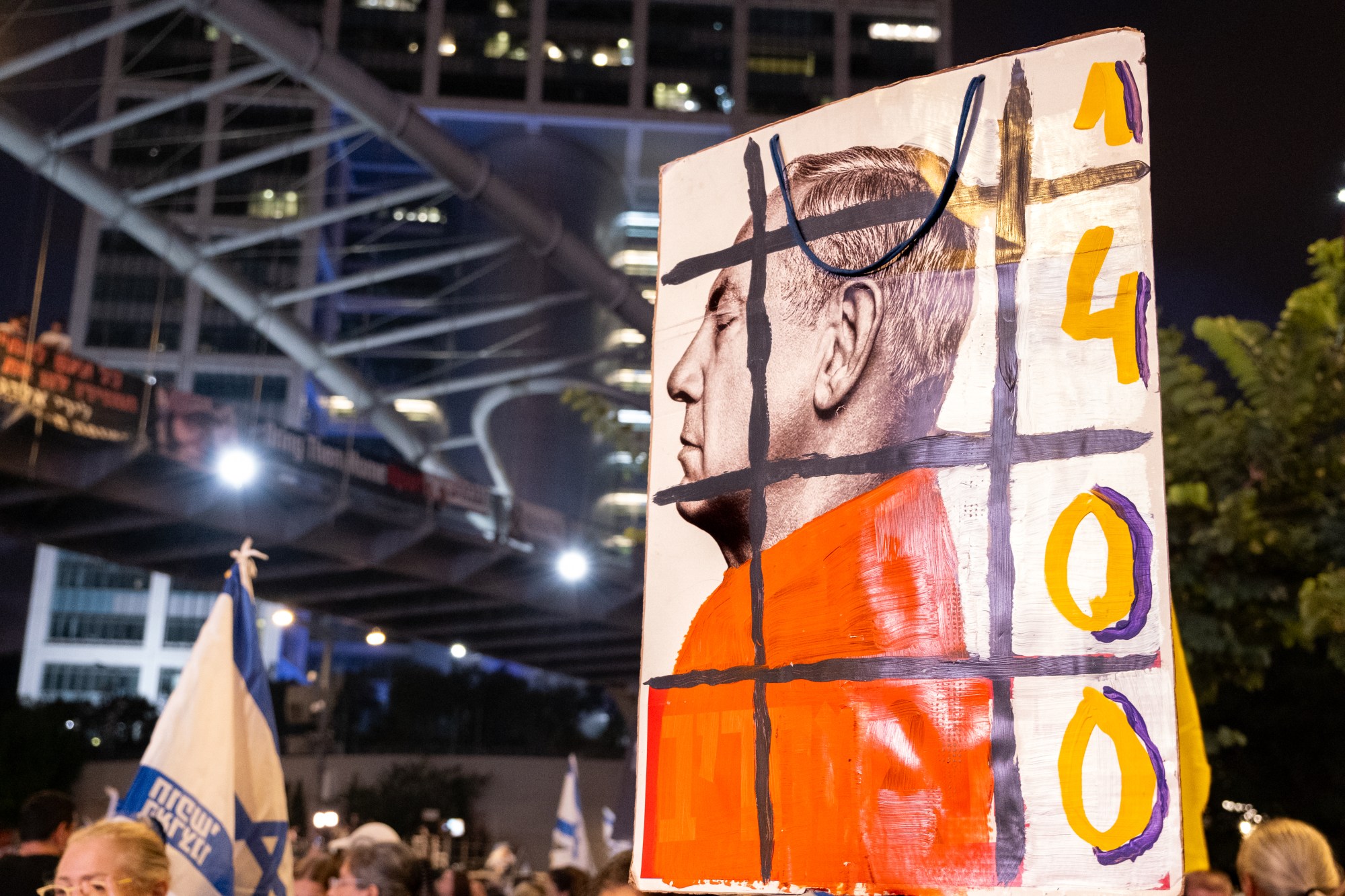
Yet Netanyahu, who has led the Likud Party for more than two decades and is serving his third stint as prime minister, has been able to recover some of his prewar support. After polling dismally for the first six months following October 7, the prime minister’s approval rating began its steady recovery in April, following a thwarted Iranian aerial attack.
“Netanyahu has managed to strengthen his public support, not to the extent that he feels secure in his position—there is not a consensus that he is the right wartime leader—but if we look at the center-right and center-left, we don’t see any figure that is comparable to him in terms of his public standing,” Tamar Hermann, head of the Israel Democracy Institute’s Viterbi Family Center for Public Opinion and Policy Research, told The Dispatch. Mass demonstrations calling for Netanyahu’s resignation, she added, have allowed him to rally support from people who think he’s been unfairly blamed for the failure of hostage deal negotiations.
And indeed, Hamas has shown little interest in reaching an agreement. The terror group last month rejected an American-backed bridging proposal that Secretary of State Antony Blinken said Netanyahu supported. U.S. officials have reportedly begun to doubt Hamas leader Yahya Sinwar’s eagerness to reach a deal, but American mediators are nevertheless pushing ahead with negotiations. President Joe Biden recently said that “just a couple more issues” remain unresolved, and the administration is currently finalizing its latest draft proposal to resolve final sticking points between the two sides.
Public messaging from the Israeli side has been less encouraging for those who want a deal. On Thursday, Netanyahu made one of his most pessimistic forecasts yet. “There’s not a deal in the making,” he told Fox News. “Unfortunately, it’s not close.”
While Hamas has insisted on a full Israeli withdrawal from the Gaza Strip, Netanyahu insists that the military must continue to hold the Philadelphi corridor—an 8-mile stretch of land between Egypt and Gaza—to prevent the terror group from rearming and smuggling fighters in and out of Gaza. Failing to do so, some analysts argue, would pose a grave threat to Israeli soldiers should the country need to resume fighting in the future.
On the other hand, Netanyahu’s own defense minister, Yoav Gallant, has pushed the government to drop the demand if it means reaching a deal. A security cabinet meeting late last month reportedly devolved into a shouting match between the two Likud Party members after Netanyahu doubled down on his desire to hold Philadelphi despite Gallant’s insistence that the military can retake the corridor if needed. “As the prime minister you are authorized to bring to a vote any decision you want—including executing the hostages,” the defense minister is quoted as saying.
Two days later, the Israel Defense Forces discovered the six murdered hostages, leading to a wave of public outrage that has persisted since. At the demonstration in Tel Aviv on Saturday, protester Eyal Vald shared Gallant’s conviction that Israel should vacate Philadelphi to get its people home. “The Philadelphi corridor is very important, but right now the lives of the kidnapped are much more important. We can always go back and take over the corridor. Right now, what’s important is bringing them back,” he told The Dispatch.
Vald also accused Netanyahu of caving to the “extremists” in his coalition, referring to Finance Minister Bezalel Smotrich of the Religious Zionism Party and National Security Minister Itamar Ben-Gvir of the Otzma Yehudit party, who oppose any deal that permanently ends fighting in Gaza before Hamas is destroyed.
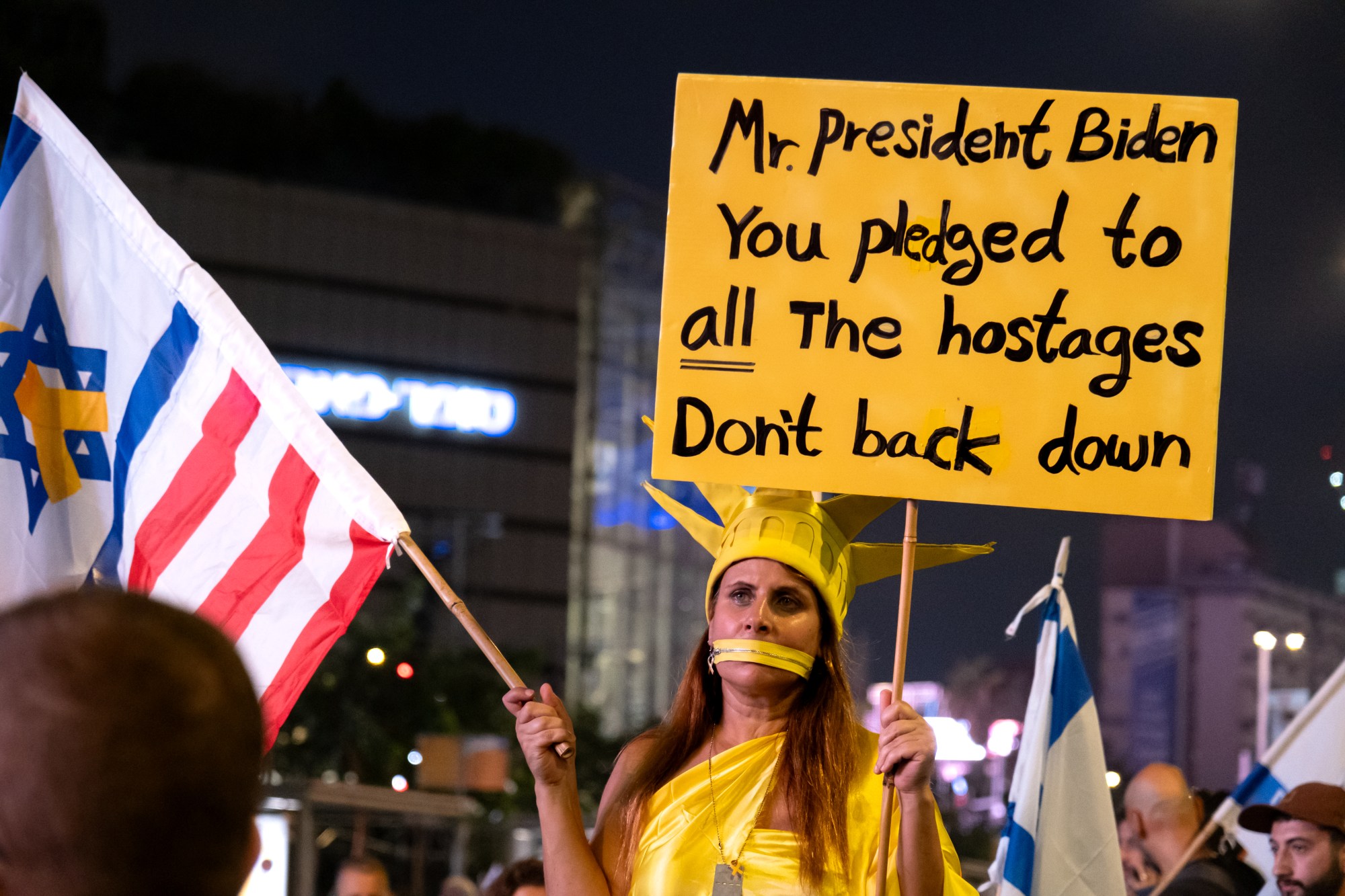
Others see the lack of progress in negotiations as wholly unrelated to intra-Israeli politics, pointing to Hamas and Israel’s fundamentally opposing war aims. Jerusalem has consistently vowed to topple Hamas as a military and governing entity in Gaza—a goal endorsed by most Israelis. Hamas, meanwhile, wants to reconstitute postwar and squeeze as many concessions out of Israel as it can in the process.
But Israeli demonstrators don’t see it as their job to get Hamas to the table. “I am not a citizen of Gaza. I am a citizen of the state of Israel. It’s not my responsibility to care or to think what Hamas wants or needs. I only hold my prime minister accountable,” Jerusalem resident Karen Saar said from Saturday night’s protests, where she carried a poster that read, “Executed by Hamas. Abandoned by Netanyahu.”
“Netanyahu didn’t pull the trigger, Hamas pulled the trigger. And he didn’t abduct the hostages, Hamas did,” Saar added. “But he’s the prime minister of Israel, so he’s responsible for bringing them back.”
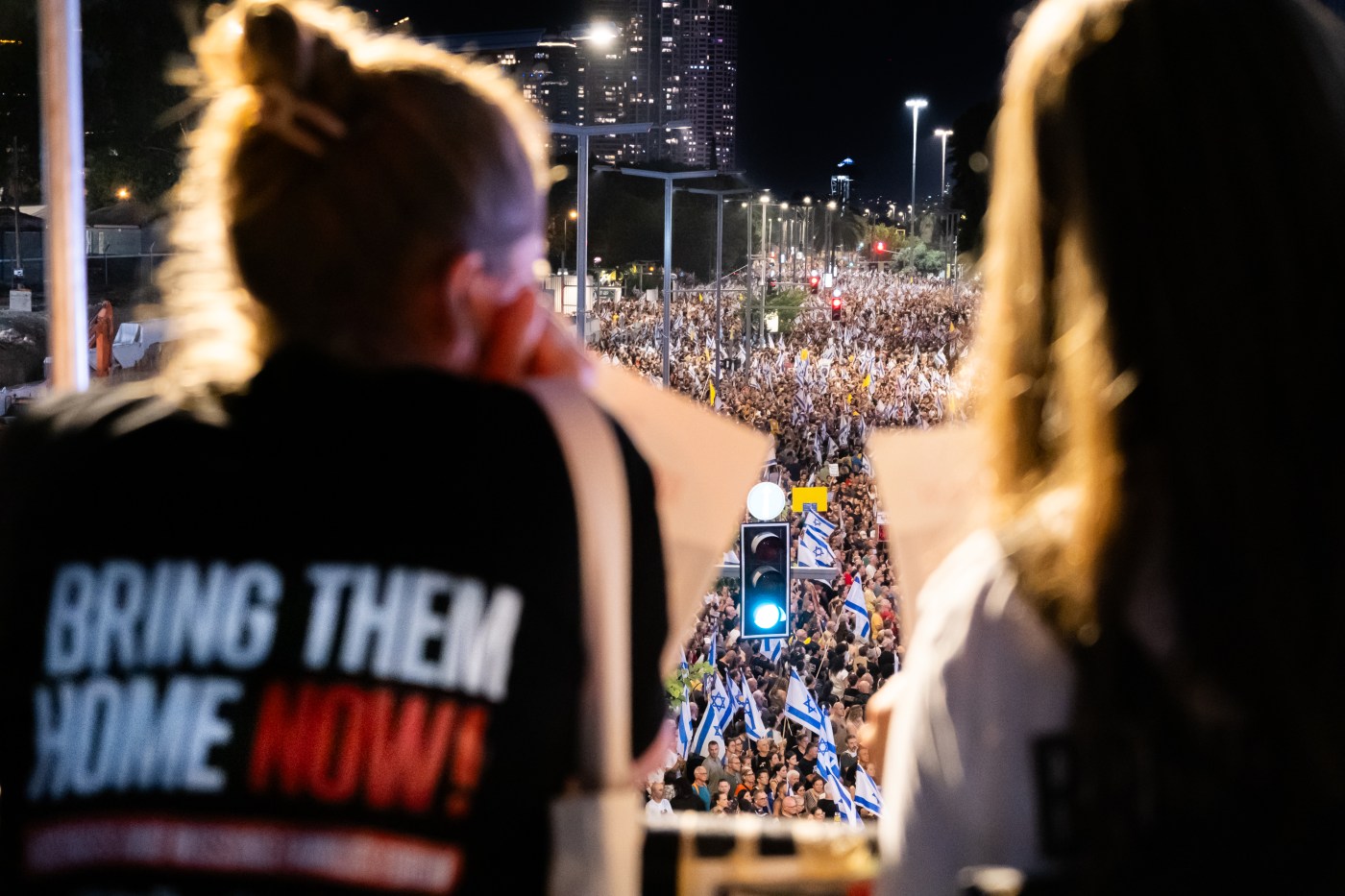


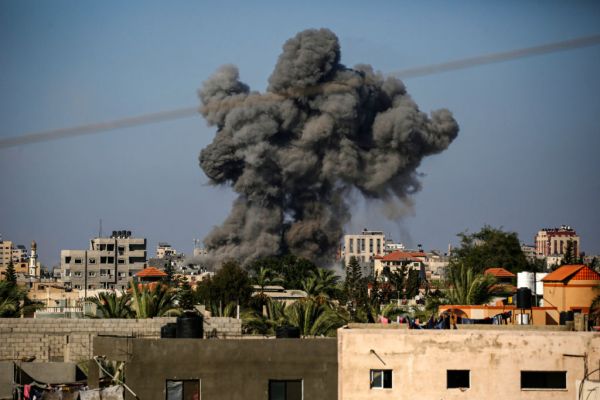
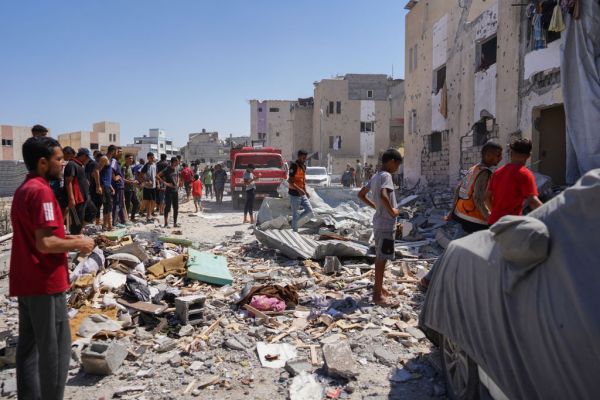

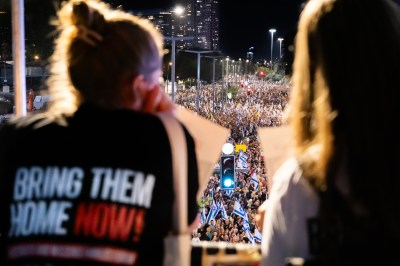
Please note that we at The Dispatch hold ourselves, our work, and our commenters to a higher standard than other places on the internet. We welcome comments that foster genuine debate or discussion—including comments critical of us or our work—but responses that include ad hominem attacks on fellow Dispatch members or are intended to stoke fear and anger may be moderated.
With your membership, you only have the ability to comment on The Morning Dispatch articles. Consider upgrading to join the conversation everywhere.